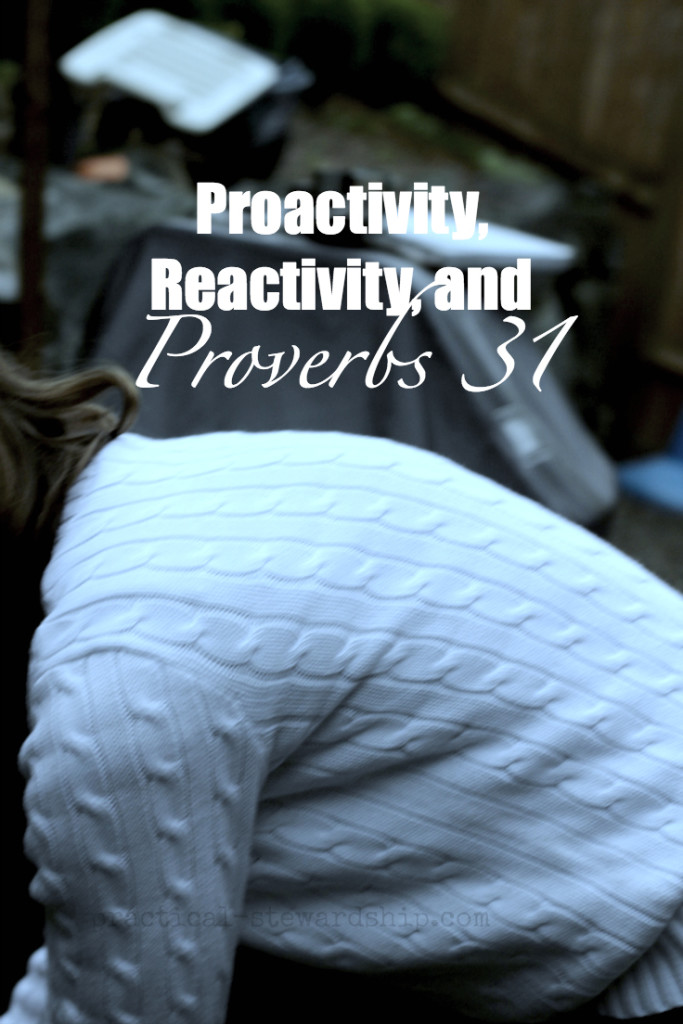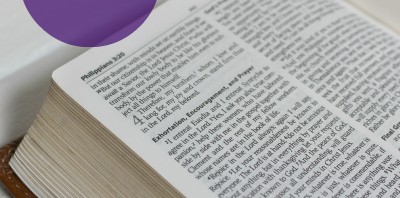What sort of workers are indispensable to their employers? What sort of parents are the best nurturers of their children? What sort of physicians are the best health care providers? Where am I going with this?

I’m glad you asked.
The best employees, parents, doctors, politicians, stay-at-home moms, church ministers and store clerks have one thing in common: they’re known for their proactivity more than for their reactivity. This brings me to take a look at another universal life principle (or “ULP,” if you’d prefer). Namely proactivity is better than reactivity.
 Now, I’m not suggesting that there’s no place at all for reactivity. If a baseball is flying at your head, quick reactivity is in order. Arterial laceration? Go ahead and react.
Now, I’m not suggesting that there’s no place at all for reactivity. If a baseball is flying at your head, quick reactivity is in order. Arterial laceration? Go ahead and react.
Of course there’s a place for reactivity. But generally speaking, we Americans are content with the status quo, and our schedules are so full that we content ourselves with survival.
Enter the tyranny of the urgent.
Here we are, bumping along, answering the emails that require immediate attention, putting out the biggest fire at work, and getting up off the couch when the children’s screams have that “I’m injured” quality more than the usual “I’m angry” quality. React, react, react.
This becomes a lifestyle, and it yields constant stress, frustration, and – at best – a lot of efficiency that’s devoid of effectiveness. We get a lot of stuff done, but the most important things have to wait until they attain urgency status and move to the top of the pile.
Not a good way to live.
Now, it would not be hard to show how the best doctors work to get to the root causes rather than only treating symptoms, or how the most valuable employees are self-starters. But I think it might be best to simply look at a character from Scripture who had this proactivity/reactivity quandry nailed: the woman of Proverbs 31.
Now, although Proverbs 31 is describing a woman, the character attributes she demonstrates would benefit us all. So consider with me a few of these principles and then decide for yourself if she would best be described as proactive or reactive.
The heart of her husband trusts in her, and he will have no lack of gain (31:11). Why would her husband trust her? Because she’s responsible, virtuous, godly and wise. She has others’ interests at heart and works to best serve them.
She seeks wool and flax, and works with willing hands (31:13). Seeking out raw materials for the working of fabric is proactive.
She is like the ships of the merchant; she brings her food from afar (31:14). You cannot bring food from afar reactively; there’s not enough time. It involves proactive planning.
She rises while it is yet night and provides food for her household and portions for her maidens (31:15). She anticipates her people’s needs and rises early to meet them. While many other women are still sleeping, she is making her own life less comfortable in order to meet the needs of her people.
She considers a field and buys it; with the fruit of her hands she plants a vineyard (31:16) This is not impulse shopping (reactive); rather, her considering the field is deliberate and proactive, as is her use of the field for commercial purposes.
She dresses herself with strength and makes her arms strong (31:17). This is more than a reactive weight-loss program; it’s a likely realization of her own weaknesses. She’s making herself fit now to be ready and suitable for work later. This is a woman who wants to be around to play with her grandkids.
She perceives that her merchandise is profitable. Her lamp does not go out at night (31:18). The context of the passage would indicate that she’s not up late playing solitaire on her iPhone; her lamp doesn’t go out because she’s working hard and late to serve others and anticipate their needs.
She opens her hand to the poor and reaches out her hands to the needy (31:20). Hers is a generous proactivity, anticipating not only her needs, but the needs of the less-fortunate. Her industry equips her to better minister to the needy.
She is not afraid of snow for her household, for all her household are clothed in scarlet (31:21). When the cold weather comes, she’s ready for it! And so are her people!
Strength and dignity are her clothing, and she laughs at the time to come (31:25). I love this one. She looks to the future with a prepared and confident smile. The reactive person cannot do this.
She opens her mouth with wisdom, and the teaching of kindness is on her tongue (31:26). Her character reflects that she is wise, and she is worth listening to. This woman is most likely an excellent advisor to her elder husband (cf. 31:11, 23).
She looks well to the ways of her household and does not eat the bread of idleness (31:27). This proactive woman is industrious as she cares for the needs of her household.
Of course, there’s a lot of overlap and repeating messages in these verses, but the whole of the book points to the proactivity of this woman. In her wisdom, she anticipates needs, seizes opportunities, and works hard.
Transferring these attributes to another context, what sort of physician or car mechanic might the Proverbs 31 woman have been? A proactive one, no doubt.
What about you? How can you apply these principles in your context? Your area of influence?
